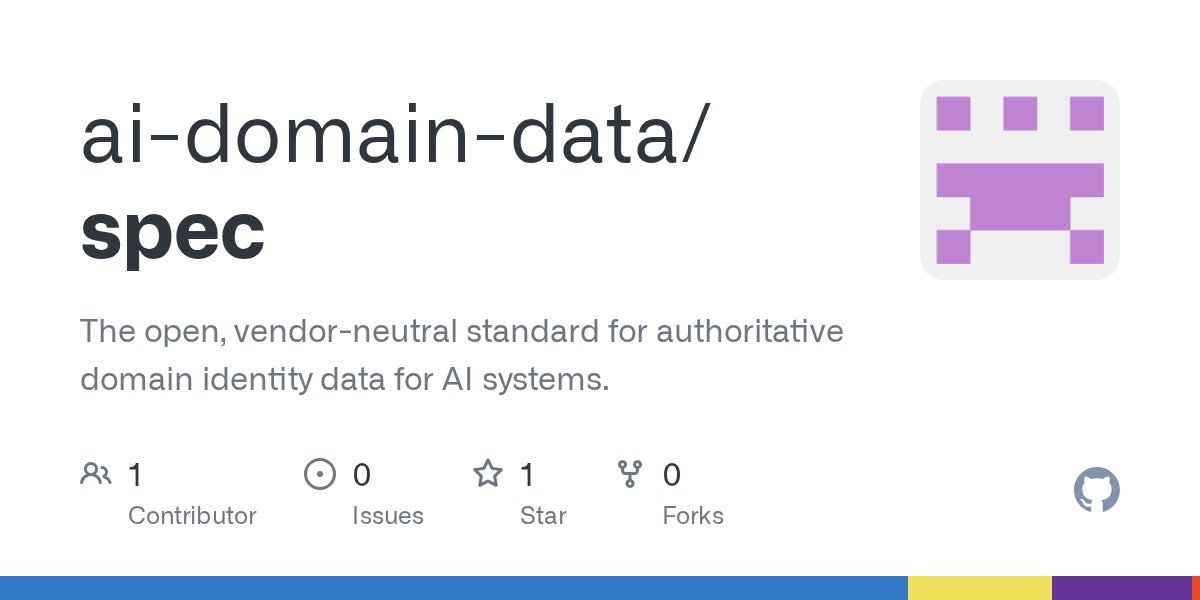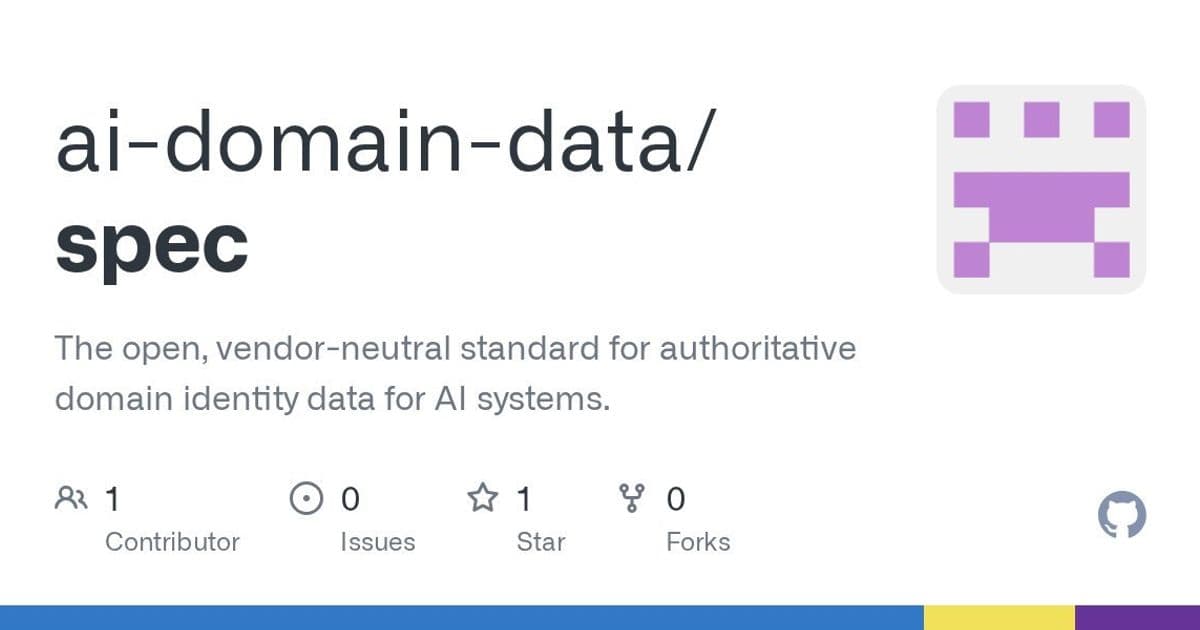The AI Domain Data initiative unveils its v0.1 standard, providing an open, vendor-neutral format for domain owners to publish authoritative JSON records directly on their sites. This move aims to empower AI systems, search engines, and automated agents with verified domain data, reducing reliance on third-party intermediaries. With accompanying tools like a CLI and resolver SDK, the standard promises to streamline adoption and enhance the integrity of AI interactions with the web.
Introducing the AI Domain Data Standard: A New Era for Authoritative Web Identity in AI-Driven Systems
In an age where AI agents roam the web with increasing autonomy, the need for reliable, self-published domain information has never been more pressing. Enter the AI Domain Data (AIDD) initiative, which today releases its v0.1 standard through a working repository on GitHub. This open, vendor-neutral format allows domain publishers to host authoritative JSON records at https://<domain>/.well-known/domain-profile.json, with an optional TXT record mirror via _ai.<domain>. It's a bold step toward decentralizing trust in AI systems, search engines, and other automated agents that consume domain data.

The repository, hosted at https://github.com/ai-domain-data/spec, is more than just a spec—it's a comprehensive toolkit. It includes a React/Vite-based site for generating and checking these JSON profiles, human-readable documentation, and production-ready packages like the aidd CLI and a Node/TypeScript resolver SDK. Under the MIT License, this project invites broad collaboration, aligning with phases 1–3 of its roadmap: from spec definition and proof-of-concept to distribution and minimal implementation.
Why This Matters for Developers and AI Builders
For developers building AI applications or integrating with web data, the implications are profound. Traditionally, domain metadata—think verification, ownership signals, or AI-specific instructions—has been fragmented across third-party services, leading to inconsistencies and potential security risks. AIDD standardizes this into a simple, self-hosted JSON structure, complete with a JSON schema for validation. As outlined in the specification, it supports optional entity_type fields, making it flexible for diverse use cases like verifying site authenticity in retrieval-augmented generation (RAG) pipelines or instructing AI crawlers on data usage.
Consider the technical guide: Publishers can generate their profile using the provided UI or CLI, validate it against the schema, and serve it from their .well-known endpoint—a standard web convention that's already familiar to devs from protocols like Let's Encrypt. Integrators, meanwhile, can leverage the resolver SDK to fetch and parse these records programmatically. This reduces latency and dependency on centralized APIs, which is crucial for scalable AI systems handling millions of domain queries.
{
"$schema": "https://raw.githubusercontent.com/ai-domain-data/spec/main/spec/spec/schema-v0.1.json",
"entity_type": "organization",
"name": "Example Corp",
"description": "A sample domain profile for AI consumption."
}
The above snippet illustrates a basic profile; real-world implementations might include fields for contact info, content policies, or even machine-readable licenses—empowering AI to respect domain owners' intent without guesswork.
Bridging the Gap Between Web Owners and AI Agents
The initiative's outreach materials, including adoption guides and implementation overviews, address common barriers to entry. Domain owners get checklists for rollout and governance, while the plain-language introduction explains the 'why': In a post-ChatGPT world, AI's hunger for structured data outpaces the web's ability to provide it authoritatively. Without standards like AIDD, we're risking a future of hallucinated facts or biased inferences drawn from unverified sources.
Looking ahead, the roadmap teases future integrations like WordPress plugins and Cloudflare Workers, which could automate adoption for non-technical users. For now, getting started is straightforward: Clone the repo, run npm install and npm run dev for the site, or build the CLI with npx @ai-domain-data/cli aidd --help. This hands-on approach democratizes the standard, ensuring it's not just theoretical but immediately actionable.
As AI continues to blur the lines between human-curated and machine-generated content, initiatives like AIDD remind us that the web's foundational principles—openness, decentralization, and owner control—must evolve to match. By giving domains a voice in the AI conversation, this standard doesn't just standardize data; it safeguards the web's integrity for the intelligent era ahead.

Comments
Please log in or register to join the discussion